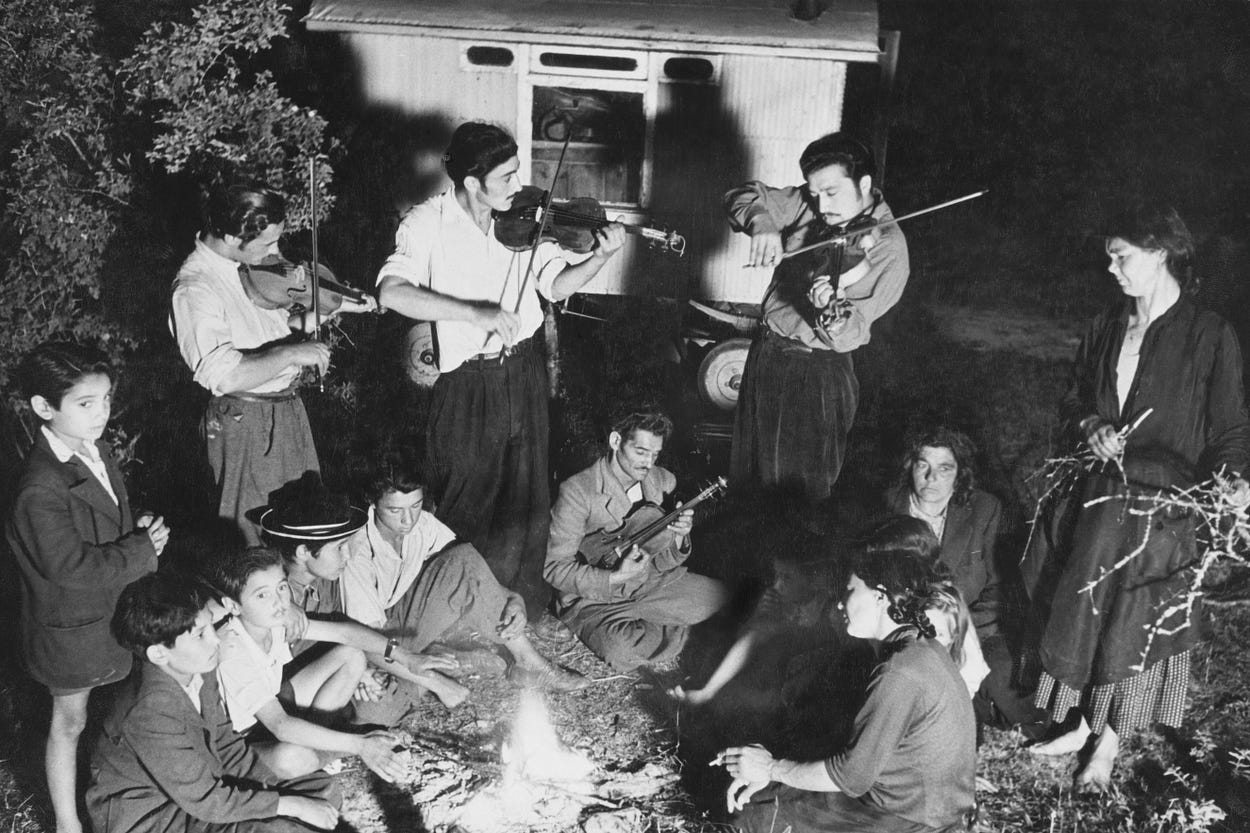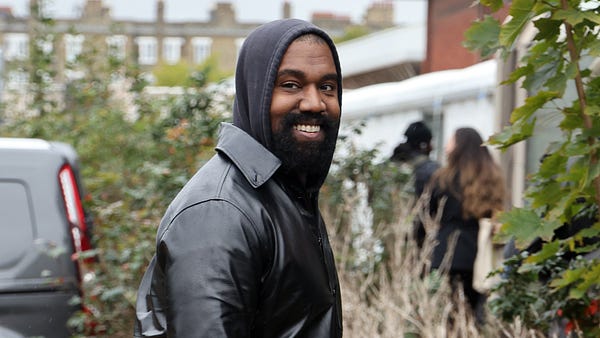
The Free Press

Some 40,000 of you receive these columns to your inbox. I am bowled over by that number. I’m also keenly aware, as a subscriber to a dozen newsletters myself, of not wanting to bore you.
As you’ve surely noticed, I’ve been hitting one theme hard since I started Common Sense some eight weeks ago: the rapid spread of soft totalitarianism and what it means for us and for our institutions. Especially our schools.
I feel obligated to tell these stories for two reasons: these stories bring real news and it is news you generally won’t find in the mainstream press.
The other reason I feel drawn to this theme is that I think many misunderstand it as a fringe or frivolous subject — the latest goings on in a culture war that’s been with us for more than a half-century. I think that’s a profound misreading of what’s going on. What’s going on is an ideological revolution. And I want to cover that revolution in this newsletter. It’s probably why you’ve come here in the first place.
But — and! — there are other parts of life! Things I love. Things I am worried about. Things I feel torn about. Things I want to elevate. Things that baffle or befuddle that I want to report out. There’s more to life than cancel culture. Or so I’ve heard.
As I pick up the pace of this little publication and bring in more new writers, you can expect Common Sense to cover more topics. I also want to get in on that. Starting today.
Covid has changed my habits, like all of ours, in unexpected ways.
One: I became — I cannot believe I am writing these words — a bath person. A committed one who lingers in the bath-salts section of Whole Foods. My rapid-onset transformation into my mother continues apace.
I also became a very good maker of Negronis. It’s been my go-to drink since I met Nellie, but during the past year it became a very necessary staple, a way of transforming my desk to the dinner table and pretending like I wasn’t still sitting in exactly the same spot.
In The Before, I never used to be able to cook decent rice, nor did I know about reserving pasta water for the sauce. (Yes, I know, I hadn’t lived.) Now I feel I could handle Top Chef, but only in the grain territory.
But the biggest skill I have relearned is not challah-baking or Zumba-flailing, but reading.
I realize that sounds nuts given that my work requires me to read for many hours each day. But I don’t mean Internet-reading or newspaper-reading or even magazine-reading. I mean paper in hand, curled up on couch while eating chips, or laying in the Los Angeles sun old-fashioned reading. This mostly happens on Shabbat, when we mostly turn off our phones for 25 hours. (Nellie, who has the zeal of the convert, sometimes catches me texting in a closet.)
I wanted to share some of my favorites of the past six months. Soon I’m going to launch a book club to bring my favorite writers to you, so consider this a very initial foray into that project.
What the hell is going on? How did things get so broken? And how can we live well inside (or despite) the brokenness? There are three books I’ve read that answer each one of those questions.
THE REVOLT OF THE PUBLIC by former CIA analyst Martin Gurri is the book I have recommended more than any other this past year. He owes me a cut, as I told him in a recent interview, which I’m going to write up for a future column.
Anyone that thinks the primary conflict in America is between Republicans and Democrats is out to lunch. The real conflict — not just in this country but in the 21st century — is the one between what Gurri variously calls the center and the border, the hierarchy and the network, or the elites in their ivory towers and the public in their chaotic squares. That conflict has been created by the digital revolution. If you dream of things calming down or going back to normal anytime soon, bad news: we are only at the very beginning.
The tool of the revolution is information. The authority of 20th century institutions like Harvard or The New York Times depended on scarcity; they genuinely had access to exclusive information and secret knowledge. That authority has utterly collapsed under the force of the never-ending tsunami of information available to any fool with Google.
If you want to understand how seemingly discreet phenomenon like Brexit, the election of Donald Trump, and the GameStop short squeeze are actually all part of one story, Gurri, who published this book in 2014, will show you.
Most important, he will convince you, once and for all, that the old hierarchies are dead and no amount of nostalgia can revive them. The real question is what comes next.
Christopher Lasch’s book THE REVOLT OF THE ELITES — the books are best experienced as a double feature — makes the compelling case that our elite class has abandoned its sense of duty and noblesse oblige. That unmooring from community, from commitment, and from a common culture has unraveled our democracy. It is them and not the deplorables, he argues, who pose the real threat.
Lasch’s book was published in 1996, but you will not believe how prescient it is. It should be required reading — his book, “The Culture of Narcissism,” is next on my last — but in every indie bookstore I enter the clerk draws a blank when I ask for either title.
Ok, so Gurri and Lasch will go far to explain why things are upside-down. How can we avoid tumbling upside-down with it?
For this, I cannot recommend Rod Dreher’s book, LIVE NOT BY LIES, more highly. Rod not only saw what was coming before so many others — that “despite its superficial permissiveness, liberal democracy is degenerating into something resembling the totalitarianism over which it triumphed in the Cold War” — but he had the courage to say so.
This book, whose title is borrowed from Alexander Solzhenitsyn’s famous 1974 essay, mines the wisdom of Soviet dissidents, with a particular emphasis on Christians, and repurposes it for our own circumstances.
Among the many things Rod Dreher has put on my radar, one is the writer Paul Kingsnorth, who has lived a life worthy of its own novel. Once a leading environmental activist, Kingsnorth now lives in rural Galway, on the west coast of Ireland, where he and his wife homeschool their children, keep a farm and generally live out the values that others put on placards.
Along the way Kingsnorth has written a trilogy of novels. I read the last one, ALEXANDRIA, first, and it stands on its own. The book is set 1,000 years in the future. Civilization as we know it has been destroyed by industry and environmental collapse. Destroyed, that is, except for a tiny remnant community in England that speaks a kind of pidgin English.
I thought that would be a turn off, but it drew me in deep. So did the highly stylized language of CIRCE, Madeline Miller’s book reimagining the goddess who turned Odysseus’s sailors into pigs. I was nearly three years late to this novel, but I loved it.
Do you remember how you felt reading “Bad Blood,” the absolutely delicious and appalling story of Elizabeth Holmes and Theranos? I cancelled all my plans that weekend because I could not put it down. That’s approximately how I felt about BILLION DOLLAR LOSER, by Reeves Wiedeman, which chronicles the rise and spectacular, cannot-look-away, crash of WeWork. It’s got everything: the Kabbalah Center, a Gwyneth Paltrow cousin, virtue-signalers who fly on private jets to pristine islands where their surfing lessons are filmed by drones. Total schadenfreude. Until you realize the losers still made off with hundreds of millions.
Hot off the presses and right into my grubby little hands is BIG TIME, the first of what will surely be many books by Jen Spyra. Logrolling alert: This is one of my very best friends. But don’t take my word for it. Her debut collection been praised by people like Tina Fey and Simon Rich and Mindy Kaling, who declared: “When I first met Jen, I thought she was a deeply funny, normal woman. After reading her hilarious book of stories, I see she is even funnier than I thought, though exponentially less normal. It’s a pretty good trade-off.”
Last night I drew a bath, dumped in a bunch of salt, and read one of ten copies I ordered. I can’t recommend this one more highly.
The battle against illiberalism is going to keep raging. I don’t know when the movement for reason, generosity and individuality will win. But we — certainly I — run the risk of hardening ourselves in the process.
Some amount of hardening is necessary to weather the pain of losing friends or the cruelty of online life that are the price of being in the fight. Being in it doesn’t feel like a choice for me: I feel called to this cause. And it’s very hard for me to say no to yet another story when I hear from another person in the maw of this, another reputation and career torn down.
But I find that the fight is only sustainable if we nourish our souls, which is also a way of remembering what we’re fighting for.
Liberalism insists that there are things that fall outside of the realm of politics — literature, art, pleasure, love, friendship, family. The new movement would have you believe that every movie can only be understood through the lens of gender or race or politics. That every story and every book must serve a political cause. That every family member and friend must be subjected to a litmus text. Liberalism rejects that. So do I. In the end, that is what I am fighting for: a world where you don’t have to think about politics constantly.
If you’re reading my newsletter, you’ve already voted with your feet. But my goal is not just to convince you that the old world has got it wrong. It’s to convince you to build a new world — one that is generative, joyful, fearless, honest, surprising and good.
Next on my list:
“A Beginner’s Guide to America: For the Immigrant and the Curious” by Roya Hakakian
“The Constitution of Knowledge: A Defense of Truth” by Jonathan Rauch
“Hunt, Gather, Parent: What Ancient Cultures Can Teach Us About the Lost Art of Raising Happy, Helpful Little Humans” by Michaeleen Doucleff
What have you read that you’ve loved of late? It doesn’t have to be a new book. I’d love if you’d share titles in the comments section.
Also, if you haven’t subscribed yet, please consider doing so right here . . . and have a wonderful weekend.














In the end, that is what I am fighting for: a world where you don’t have to think about politics constantly.... And when you do, its a form of politics that does not require you be perpetually offended.
Thanks, Bari! I have a birthday coming up, and my wife is always encouraging me to put relatively inexpensive things on an Amazon wish list (I loath Amazon, and won't spend any money on that site unless I have no alternative). You've given me five different books to list!